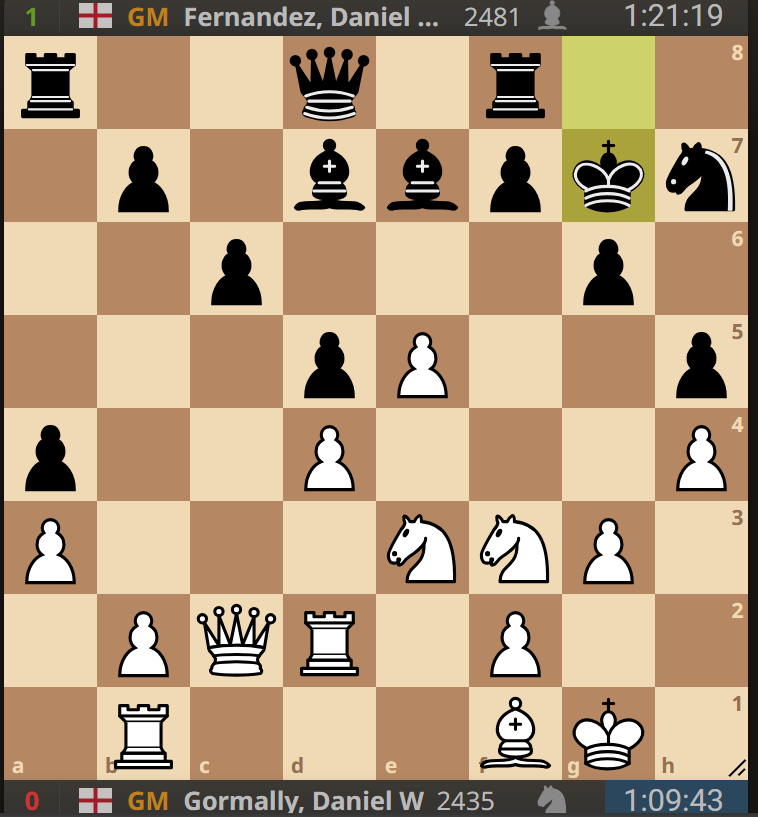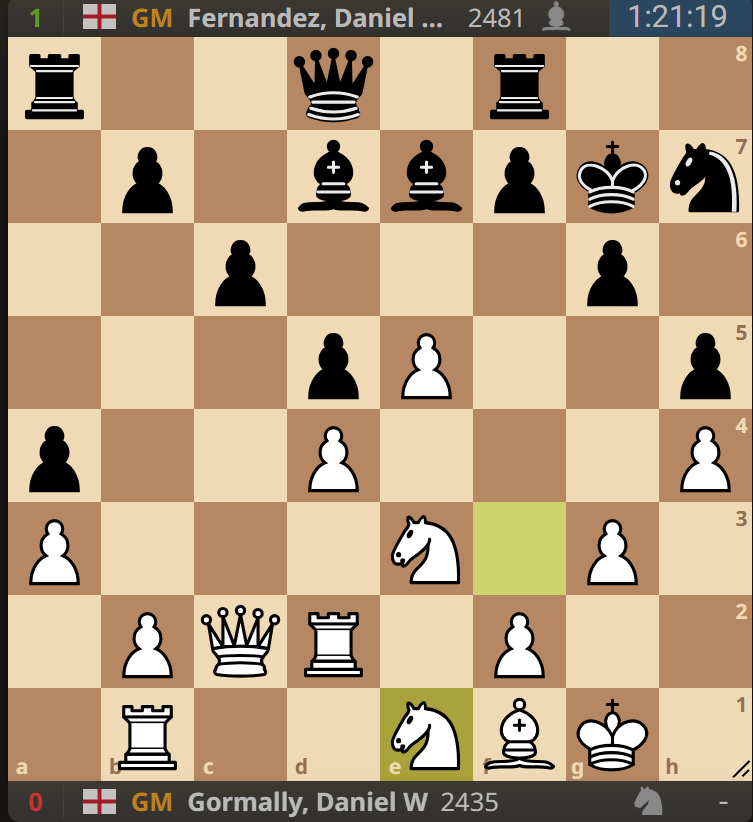The number one mistake that chess amateurs make.
Why amateurs need to become more comfortable with calculation.
What is the number one mistake that amateurs make at chess? In my view, it's how they approach the position. While experienced and strong chess professionals tend to approach a chess position concretely by calculating concrete variations, a lot of amateur players seem to do the opposite and tend to make the mistake of over-generalizing.
I first noticed this trend when I would give lessons (mainly online) to amateur players. If I’d ask them about a position, I would get a lot of waffle and very few actual variations. They'd talk about the features of the position to the extent where it was boring, they were going around in circles, and I was in danger of falling asleep. The problem is that by generalizing too much, the amateur player is suffering from paralysis by analysis. They are bombarding their mind with too much information and this in itself interferes with the thinking process.
I started to wonder why this was. Why do amateur players over-generalize too much, and waffle and prattle on when you ask them about a position? Why, when you ask them for an assessment of a position, do they go on about the general features that are present rather than just giving you a simple answer, like “white is better,” etc?
Then I realized what the answer is. While professional players start with calculation, and there will be some words in there but in general it will be mostly concrete variations floating through their minds, the reason why amateur players don't follow this process is because they are uncomfortable with calculation. The reason they are giving me a lot of waffle is because they don't want to calculate, they don't want to talk about variations. I think at least in part, because amateur players aren’t used to calculating variations. We professional players by contrast calculate variations all the time, and because of this constant practice tend to be fairly good at it.
Even professional players don't always act like robots during the course of a chess game though, and our ability to calculate is often influenced by emotional factors. Witness the following position I had recently, against my fellow GM Daniel in Daniel Fernandez (who by the way, crushed this tournament in Ghent in Belgium with a very impressive 7.5/9)
In this position I played 21 Bd3?
this mistake came about because at this point of the game I was starting to lose my cool and wasn't going through the process of calculation like perhaps I had been earlier in the game. Daniel was moving quickly and forcing me to think in my own time. I didn't expect this; normally I am comfortable on the clock. So I switched to reaction mode, and Bd3 was the product of a quick calculation to prevent him playing the freeing pawn break ...f6.
Bd3? turned out to be an error because it left me with no concrete follow-up. If I now move the knight from f3 in order to push the f-pawn, I become vulnerable to a quick … Qb6 xd4, which is exactly what occurred in the game.
I still had over 40 minutes and this turned out to be a critical moment, although of course it is easier to identify the most important moments of a game after it has been played. That is your challenge in a game and the very best players seem to be the best at sensing when they need to really think, when they need to go into the tank and put in that time. If I had done so, I might have realized that a good plan was
21 Ne1! with the idea of pushing the f-pawn and creating some attacking chances against the black king. 21. Kh2! is also quite promising for white, with the same idea of playing f4, and in some cases white can also play the bishop to h3.
So I failed to grasp the key to the position which was to play concretely and forcefully, attacking my opponent on the kingside. The reason I did not manage to do this was because I was being put under pressure on the clock by a skilled and wily opponent.
What I did at this moment was what amateur and inexperienced players do all the time. They rush through key phases; they fail to recognise the most important moment of the games, they make too many decisions intuitively. Fortunately for myself, I happen to make these kind of mistakes less often than most amateur players.
In order to improve, amateur players need to get past the vague and the general, they need to move beyond the intuitive and actually start crunching through the variations.
So work on your calculation. Buy that Chessable course or book on calculation. Study your games relentlessly for any calculation errors. Do puzzles, endgame studies online. In order to become a master of calculation, you need to become comfortable with calculation.




I believe there's multiple causes.
I can only speak for myself, but from reading game collections of grandmasters, there are positions that seem quiet to me, but they rattle off a few variations....whereas I would look and find my worst place piece, or a move that creates a threat, and check to see if it's a blunder. From watching other amateurs, they seem to operate this way too. And I think it's just more to do with not knowing what and when to calculate rather than being uncomfortable in positions that aren't full of tension, and having forcing moves.
I think time controls also play a part, and bad habits are formed online. There are people who are 2200+ chess.com ratings I've watched, and they don't even consider all their opponents resources (some times not even looking at obvious replies). That's from playing blitz. Whereas from playing a bunch of failed Greek Gifts over the course of my time playing chess, it has taught me to try and find my opponent's resources first and foremost. And playing 15+10 kind of allows me the time to do that.
Also, tunnel vision is really problematic for amateurs. We tend to focus on what looks the strongest instead of looking at multiple candidates. Again I think this is something to do with time controls. Whenever I've played long time controls 30+30 or higher, my mind tends to wander on its own on more moves than it would playing 15+10.
You have just described my chess in a nutshell. Thank you for this piece it was very informative.